The meaning of exist Japanese kanji.
Japanese Kanji derive from China. And it is gradually getting to change for original peculiar to Japan.
I said that All Japanese words, phrases, texts can make using only Hiragana. (#1) That`s correct. If you wrote a text using only Hiragana, it is no problem. But the reason why we use Kanji because of it will be easy to read by using Kanji. And it can make short a text.
For example,
My favorite food is sushi and tempura.
1.わたしのすきなたべものは、すしとてんぷらです。
↓
2.私の好きな食べ物は、寿司と天ぷらです。
The meaning and reading of those sentence are same. But as you can see, it can be shorten the text, and be easy to read the text.
Kanji has diverse way of using. Some words composed of only kanji. But some words composed of hiragana and kanji. Some word cannot express kanji like Post positional particle.
The feature of Japanese kanji.
Japanese kanji has two types of reading. There are “on-yomi” and “ku-nyomi”. “On-yomi”is the way of reading derived from China. “Kun-yomi” is the way of reading unique to Japan.
In short, “on-yomi” is Chinese reading, and “kun-yomi” is Japanese reading.
So Japanese kanji has two or more reading at least. Some one kanji has two or more “on-yomi” or two or more “kun-yomi”.
For example, “生” has most common reading among all Japanese kanji. There are as many as 150 or more reading. But almost all Japanese people does`t remember all reading. There are way of reading that need to remember.
So let`s learn the way of reading that need to remember, and increase your vocabulary.
The kanji are taught in first grader.
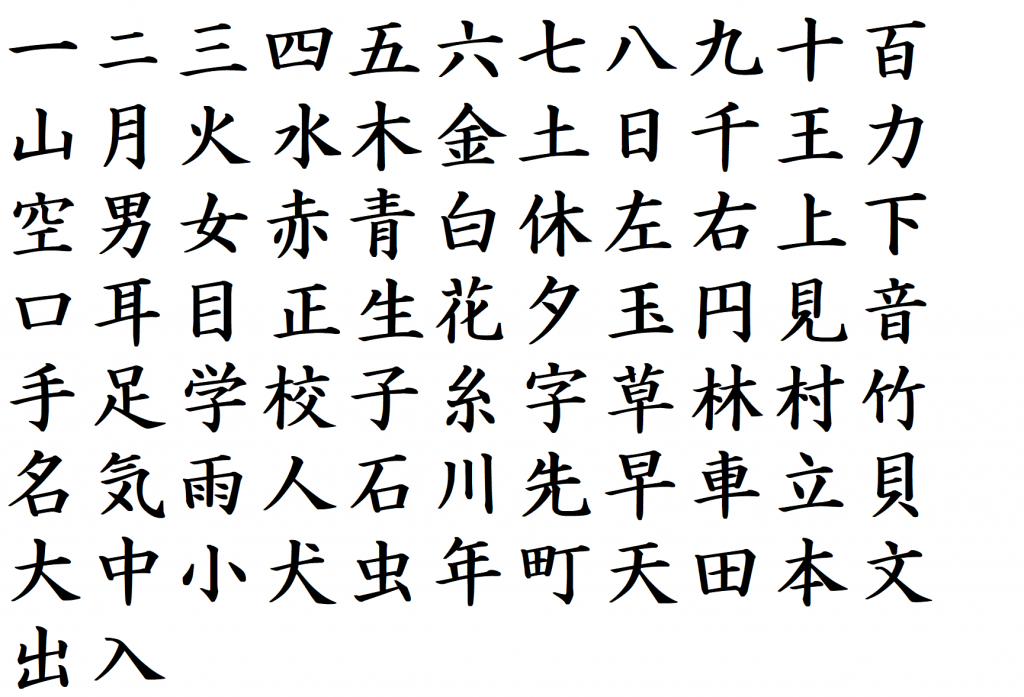
Those 68 kanji learn in first grade elementary school student.
Only use hiragana and katakana until kindergarten student.
This time, let`s learn those kanji one by one. After you learned those 68 kanji, you will move on to the next step that learn the kanji are taught in second grade elementary school student.
Let`s learn kanji one by one.
No.1 What`s the meaning of 一, and how to use and pronounce it.
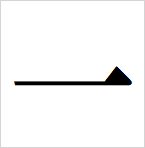
Reading
on-yomi
[ICHI / ITU]
[イチ/イツ]
kun-yomi
[HITO / HAJIMÉ]
[ひと/はじめ]
Meaning
one. name of first number. The beginning.
The word using “一”
| word | meaning | pronunciation |
| 一ばん (一番) | first / No.1 | ICHIBAN |
| 一がつ (一月) | January | ICHIGATU |
| 一しゅん (一瞬) | moment | ISSHUN |
| 一り (一人) | 1 person | HITORI |
| 一つ | one thing | HITOTU |
Special pronunciation. (Day)
| 一日 | 1st (day) | TUITACHI |
About this special reading, please see here (#3 Japanese lesson) for details.
NO.2 What`s the meaning of 二, and how to use and pronounce it.
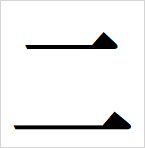
Reading
on-yomi
[NI / JI]
[ニ / ジ]
kun-yomi
[HUTA / HUTU]
[ふた / ふつ]
Meaning
two. name of second number.
The word using “二”
| word | meaning | pronunciation |
| 二ばん (二番) | second | NIBAN |
| 二がつ (二月) | Febrary | NIGATU |
| 二り (二人) | two people | HUTARI |
| 二か (二日) | 2nd (day) | HUTUKA |
No.3 What`s the meaning of 三, and how to use and pronounce it.
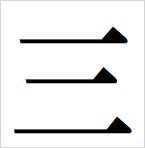
Reading
on-yomi
[SAN]
[サン]
kun-yomi
[MI / MIT]
[み/みっ]
Meaning
three. name of third number. many times.
The word using “三”
| word | meaning | pronunciation |
| 三ばん (三番) | third | SANBAN |
| 三がつ (三月) | March | SANGATU |
| 三にん (三人) | three people | SAN NIN |
| 三つ | three things | MITTU |
| 三か (三日) | 3rd (day) | MIKKA |
| さい三 (再三) | repeatedly | SAISAN |
That`s all for today. Today, you learned the Japanese word about one,一(いち) two,二(に) and three,三(さん).
We will learn the others kanji at next lesson.
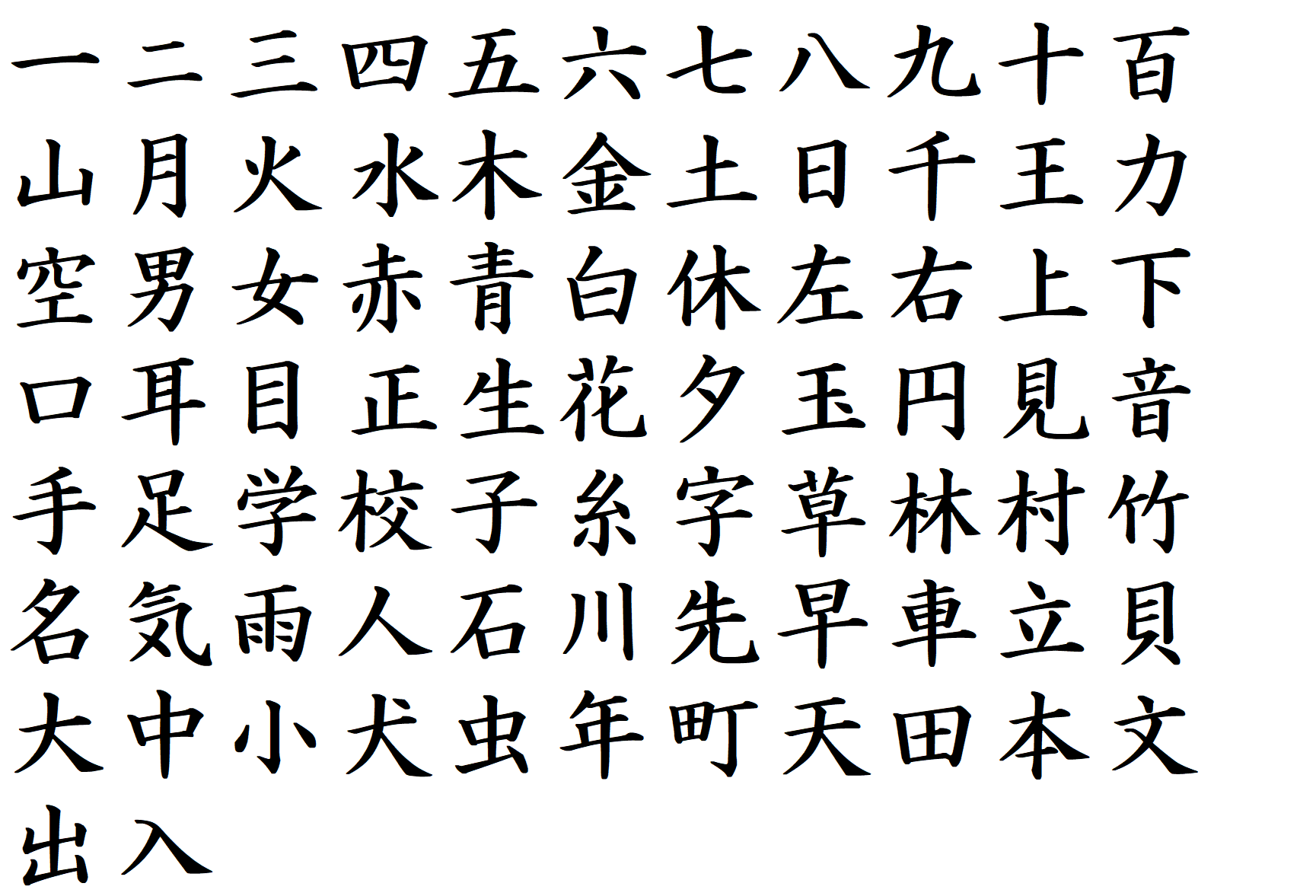
COMMENTS